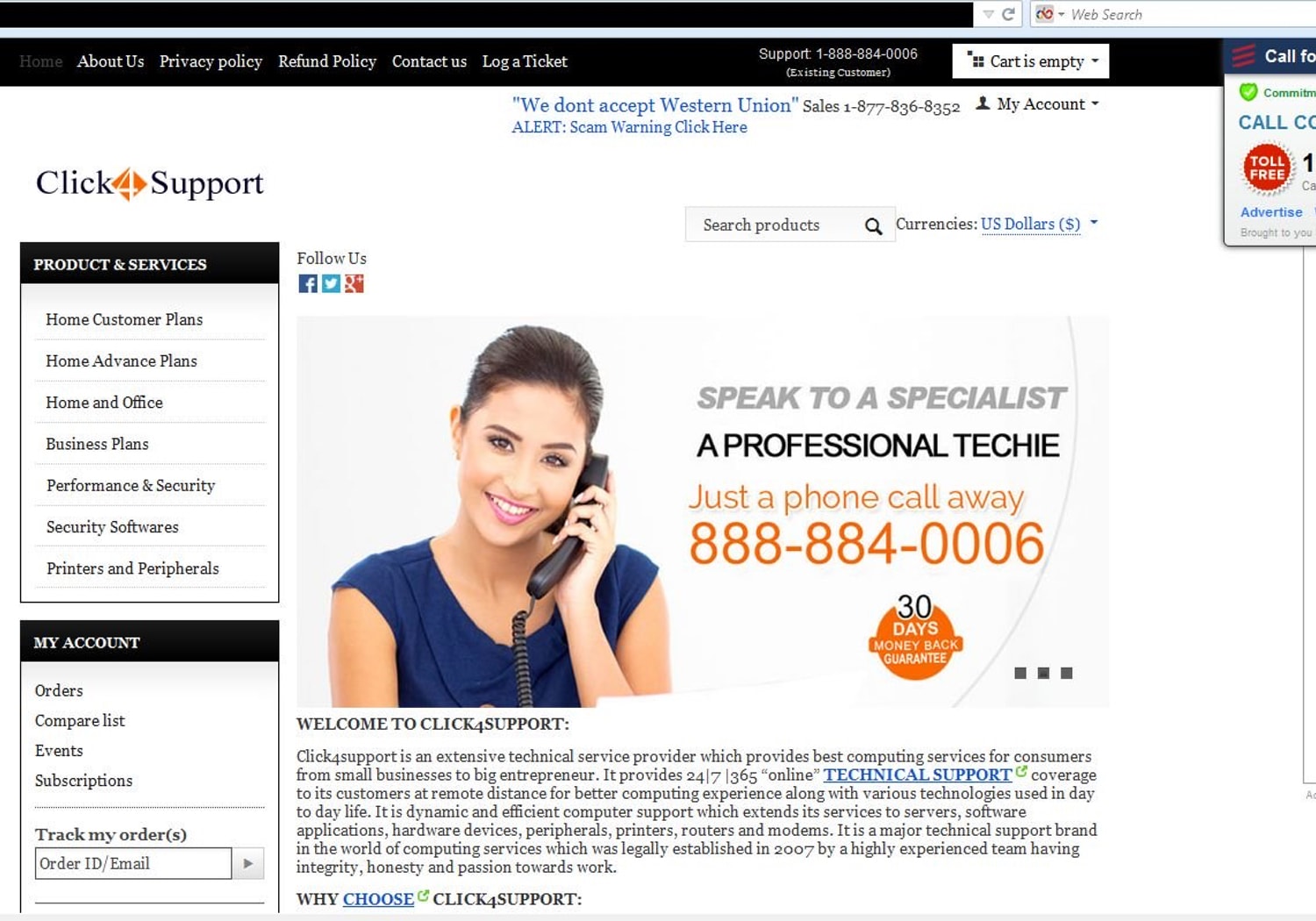The United States Federal Trade Commission announced Tuesday it is sending refund checks totaling more than $1.7 million to almost 58,000 people who were victims of a nationwide tech support scam claiming to be endorsed by Apple and Microsoft.
The FTC along with consumer protection agencies in Connecticut and Pennsylvania alleges that a company operating as ’Click4Support’ used online ads and popups, tricking consumers into believing their computers had been infected with viruses and malware.
Click4Support representatives would convince people to give the company remote access to their computers to fix issues that didn’t really exist. The fake services were sold both on a one-time fee basis or with a long-term service plan. Consumers were charged anywhere from $69 to as much as $2,000.
In the end, FTC records show Click4Support scammed more than $17 million dollars out of customers. The FTC shut down Click4Support in 2015. The proceeds from the refunds are coming directly from money seized from the company.
The FTC is providing refunds averaging about $30 for each victim. The majority of the victims will receive their refunds through PayPal, according to an online refund page.
The agency is sending out 57,813 PayPal payments and 147 checks. There is a 30-day limit for people who receive the PayPal payment to accept it, while checks need to be cashed within 60 days.
Online scams growing
The Click4Support case is just one of many examples of online scams, too many for authorities to stop before scammers collect thousands – if not millions – of dollars.
The FTC warns consumers…
If you get a pop-up, call, spam email or any other urgent message about a virus on your computer, stop. Don’t download anything, don’t call the number on the pop-up and don’t give anyone control of your computer. If you think you downloaded malware or gave a cybercriminal access to your computer, update or download legitimate security software and scan your computer.
Apple launched a scam support page in 2017 that offers tips on avoiding such scams, especially if consumers think their Apple I.D. has been compromised.


